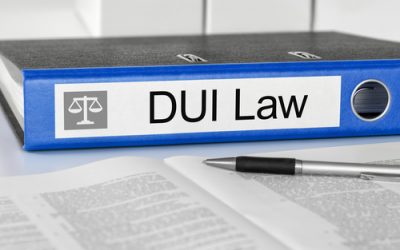
If you’ve been arrested for a DUI in Stanton, you can be facing penalties that can severely impact your life once you’ve been convicted. However, even before the trial and even if you don’t get convicted of the DUI offense, you can have your license suspended automatically. If you don’t contest or succeed at a DMV hearing, you will have your license suspended 30 days after your DUI arrest.
Fortunately, you can contest this automatic suspension by requesting a DMV hearing. A Stanton DUI attorney may be able to help you beat this suspension and possibly even build a better defense for your later criminal trial. You can schedule your initial appointment with a skilled DUI attorney by calling us today at (310) 896-2724 or by using the form on this website.
California’s Automatic Administrative Suspension After a DUI Arrest
California implemented its current administrative suspension system in 1990 to deter people from driving under the influence of drugs or alcohol. As it is handled entirely by the California DMV, it is a separate action taken by the state and does not require a DUI conviction to go in to effect. The suspension takes place 30 days from the date of your DUI arrest and can vary in length based on how many times you’ve been arrested for DUI offenses.
Affected Drivers
The administrative suspension only affects drivers who meet certain conditions spelled out in California law. Drivers who meet a threshold level of Blood Alcohol Concentration (BAC) at the time of their arrest are subject to this suspension. Likewise, drivers who refuse a chemical test after they have been arrested face this suspension.
BAC Thresholds
The state of California has three general BAC thresholds for having the DMV automatically give an administrative suspension after a DUI arrest. These thresholds are:
- BAC of 0.01% if drivers are under the age of 21 or are on a DUI probation at the time of the arrest
- BAC of 0.04% if the driver was arrested while driving a commercial vehicle
- BAC of 0.08% for all other drivers
Refusing a Chemical Test
California law requires that individuals submit to a chemical at the time of a DUI offense. This is usually either a breathalyzer test or a blood test. However, if you have a medical reason, you may instead be subjected to a urine test. A failure to comply with the request for a chemical test after you have been arrested for driving under the influence carries with it the following penalties:
- A one-year administrative suspension for your first refusal
- A two-year administrative suspension for your second refusal within 10 years
- A three-year administrative suspension for any refusal after your second refusal within 10 years of your initial DUI arrest
As long as you are over the age of 21 or not on DUI probation, this penalty is only if you refuse a chemical test after you’ve been arrested. If the officer did not inform you that a chemical test is voluntary before your arrest, this may impact your case. Likewise, the officer must let you know that it is a crime to refuse a chemical test after you have been arrested. A Stanton DUI attorney can help you determine if your chemical test is admissible in court.
The Administrative Suspension Process
After your DUI arrest, the police officer will likely send your original license to the DMV to be destroyed and will issue you a temporary license. This temporary license will expire after 30 days from the date it is issued. Officers will sometimes let you keep your physical license, but this does not affect the administrative suspension process.
You have 10 days of the notice of your suspension, which might simply be 10 days from your arrest, to request a DMV hearing to contest the automatic suspension. You may request an in-person or over-the-phone hearing, though doing it in person will make it easier to have a DUI attorney represent you.
The DMV Hearing
Your DMV hearing will be your first opportunity to contest the automatic administrative suspension that you received after your DUI arrest. This will be administered by a single official from the DMV. The DMV does not generally request the presence of the arresting officer, though you or the hearing official may request to have the officer testify.
The purpose of the hearing is to determine if the suspension was justified. You or your attorney can argue that the evidence against you was obtained illegally or is otherwise inadmissible, that you were not at the required BAC thresholds, or you were not informed properly that it was a crime to refuse a chemical test after your arrest.
Even if you don’t win your DMV hearing, the process may benefit you at trial. While the criminal trial is separate from the administrative hearing, it may be a good first run to see what evidence is likely to stand up in court or see if the officer gives conflicting testimony. In addition, if you end up getting acquitted of the DUI charges at trial, the DMV may review its administrative suspension and reverse its decision.
A Stanton DUI Attorney Can Help You with Your Administrative Suspension
If the California DMV has automatically given you an administrative suspension after a DUI arrest, you only have a limited time to contest the process. A failure to request any hearing within 10 days, whether it’s in-person or over-the-phone, will result in you losing your license after 30 days. Fortunately, you may have an attorney present to represent you at a DMV hearing over your automatic suspension.
If you think you could benefit from having an attorney represent you for your DMV hearing, contact us today by filling out the form on the side of this page. If you’d prefer, you can also reach us by calling (310) 896-2724. We will arrange for you to meet with an experienced DUI lawyer who can evaluate your case for free. With a limited time to act, don’t wait to get in touch with us!






